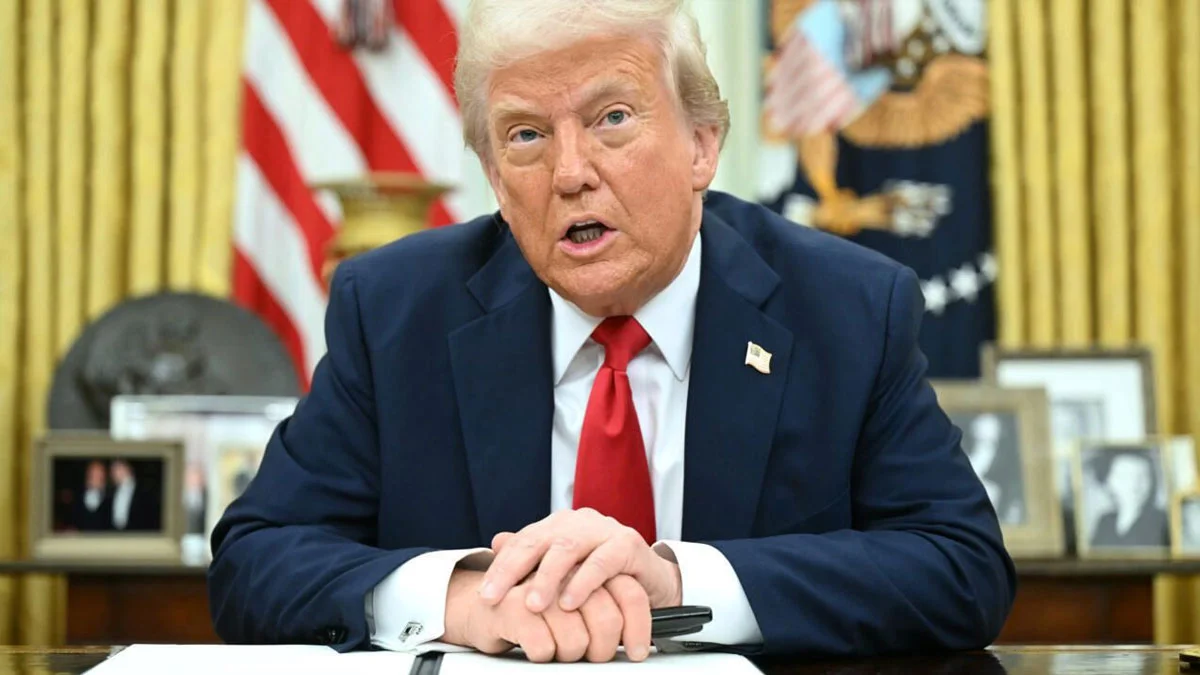
Trump’s tariff proposals, which center on what he calls “reciprocal tariffs,” were mostly unknown to businesses and countries throughout the world for months. However, he has committed to addressing at least some of their most pressing queries on April 2.
Businesses that have been yearning for certainty since Trump‘s win in November, however, probably won’t feel any better on Wednesday. Instead, it will create a whole new series of problems as nations retaliate against new tariffs by imposing countermeasures on American exports. This might lead to a new round of discussions that intensifies the already acrimonious trade war.

CNN reported that despite Trump’s declaration to reporters on Monday night that he had “settled” on a tariff proposal, White House officials continued to present him with choices on Tuesday, just hours before his self-imposed deadline.
Customizing tariff rates for each US trading partner, imposing a flat rate of up to 20% on all imports, or putting tariffs on some nations but not others were some of the options under consideration. According to a White House insider who spoke to CNN, they didn’t think Trump would make a selection until just before Wednesday’s Rose Garden announcement event at 4 p.m. ET.
White House press secretary Karoline Leavitt stated Tuesday that whatever tariff announcement Trump makes will be “effective immediately.” Although logistically questionable, other countries would have little time to engage in negotiations and could react by enacting countermeasures right once, including retaliatory tariffs.
Why Trump wants to impose tariffs

Trump sees tariffs as a way to accomplish four key objectives: reducing the amount of illegal immigration and fentanyl entering the US, balancing the playing field with trading partners, increasing government income, and promoting home manufacturing.
He has linked the 20% tariffs he has already imposed on Chinese imports and the 25% tariffs he has promised for Canada and Mexico to fentanyl and border-related problems.
According to Trump, countries that have higher tariffs on goods created in the US or with which the US has a trade deficit—that is, countries from which America imports more than it exports—are “ripping off” the US. According to him, this is the rationale behind the pursuit of reciprocal tariffs, which may include consider what the Trump administration considers to be non-tariff trade obstacles like digital services taxes (DSTs) and value added taxes (VATs).
India, Brazil, Vietnam, and other Southeast Asian and African nations could be particularly hard hit by these taxes. According to a recent Morgan Stanley analysis, these countries have some of the biggest disparities between the tariff rates that the US charges them and those that are applied to US goods that are imported into their countries.

According to the experts at the investment bank, the countries with the largest percentage of goods with a tariff differential of more than 5% over the US tax rate are Brazil, Indonesia, India, Thailand, and Vietnam.
However, as many EU nations impose VATs and DSTs as well, one of America’s biggest trading partners is probably going to be the target of greater tariffs.
Ursula von der Leyen, president of the European Commission, attempted to put Trump on notice Tuesday by claiming that the EU had “a strong plan” to retaliate against the US. A number of other nations have also been strengthening their plans for retaliation, including China, Japan, South Korea, Canada, and Mexico.
In remarks released by state broadcaster CCTV on Tuesday, Chinese Foreign Minister Wang Yi warned that Beijing would “counterattack” if the US persisted in its “blackmail” tactics.
He was cited as saying to RT, a state-owned Russian news organization, that “America First” should not be American bullying and that it should not advance its own interests at the expense of the legitimate rights and interests of other nations.
Israel adopted a different strategy, becoming the first nation to do so since Trump’s reelection when it declared on Tuesday that it will remove all of its tariffs on US goods. Even though Israel only imposed a small amount of taxes on US exports, the move was probably meant to keep the nation off the president’s radar.
Nevertheless, nations that emulate Israel might not be completely immune to tariffs.

In addition to the 25% tariff on imported automobiles that will take effect on Thursday, Trump has already placed 25% tariffs on all imports of steel and aluminum. By early May, a 25% tariff on imported car parts is scheduled to take effect.
These duties will be in addition to any nation-specific levies. For instance, if South Korea imposed a 10% tariff on all imports, then vehicles, steel, and aluminum from that country would be subject to a 35% overall tariff rate.
Additionally, on Wednesday, Trump might choose to impose even more sector-wide duties.
The president has hailed these tariffs as a means of assisting the United States government in reducing its reliance on income taxes as its primary source of funding. He has even gone so far as to suggest that income taxes could be completely replaced by tariff revenue.
Growing concerns about the recession

The current tariffs and the uncertainty surrounding the ones Trump has not yet announced have already hurt the US economy at a vulnerable moment when a growing number of consumers are experiencing financial difficulties.
A “everything, everywhere, all at once” tariff strategy may push the US economy into a recession in addition to sharply increasing consumer prices and sending financial markets into a tailspin.
Concerns regarding the tariffs’ effects on the economy have been voiced by economists. In a report released last week, Goldman Sachs analysts stated that Trump’s huge tariff plan will cause too much harm to be compensated for by economic growth fueled by his fiscal programs.
Trump and his advisors, however, have consistently denied that there is any chance that his plan will fail. Leavitt stated on Tuesday that Trump’s deregulation and tax cut policies will contribute to a reduction in inflation, potentially offsetting the impact of tariffs “It will work,” Leavitt declared.
